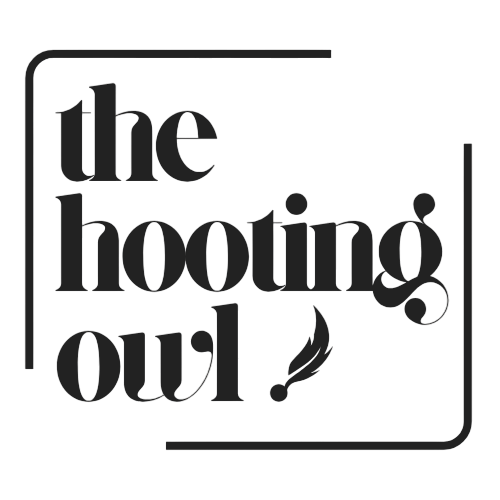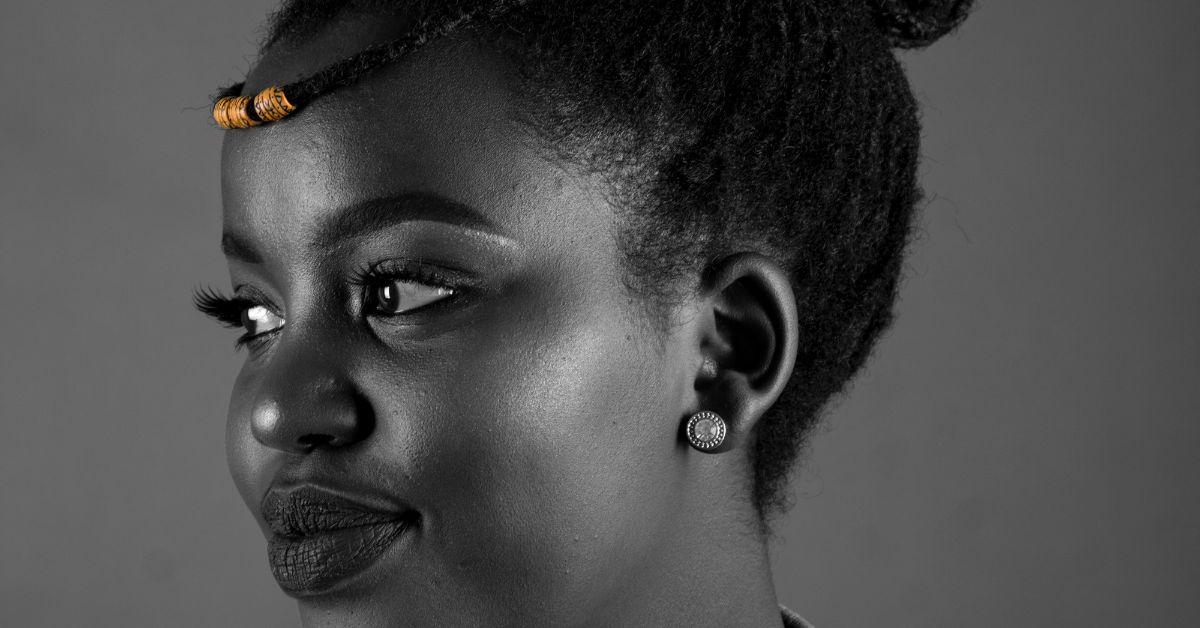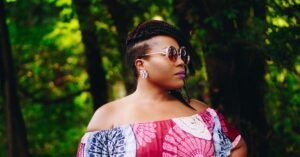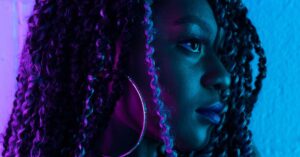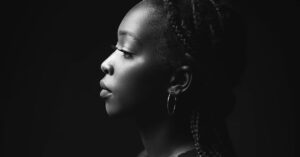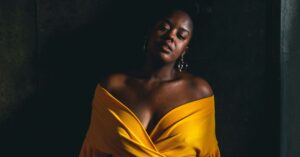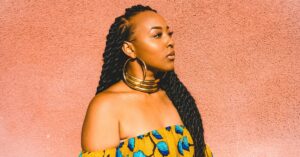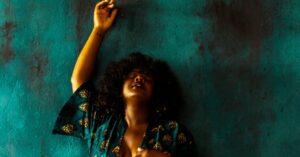I see his car before I see him. Only, I don’t know that it’s his. There are a lot of V8’s in this parking lot and I don’t look at the plates. My assistant and I are hauling our equipment to the van after a long night of shooting our third annual aviation industry dinner. The ballroom at Safari Park is one of my favorite indoor locations to shoot because of its warm colours and ambience. From the carved, wooden doors to the ceiling-high windows often complemented by flowing drapes and string lights, there’s an abundance of good décor to provide texture for my shoots.
He’s standing on the fringe of the white glow of a misty security light filled in part with rainwater. He’s rocking a fedora and he’s still in uniform. I can tell he has taken off his stripes because his shirt is unbuttoned at the top. In place of his blazer, he’s wearing a black aviator’s jacket with a mandarin collar. With a cigar smoldering in his right hand, I can’t deny he’s working that dad bod. I can tell it’s a cigar by the way it burns. He takes a drag. When he exhales, its woody aroma permeates the air between us. I swallow, remembering the taste of his lips.
I thought I might ran into him here. I hoped not but I thought I might, so I’ve had a brick in my stomach all night. It has been almost three months since I last saw or spoke to him. That’s longer than the time I went to Cape Town. That time I went on a tour to wine country and was excited to discover that the wine we had at Sigona is made there.
I contemplated telling Harry that I once had that wine back home but it wasn’t the same. So I buckled. Broke the silence. And talking to Kagwe is like popping open a can of ice cream. You can’t have just one scoop. You just keep going and going and suddenly it’s four in the morning. The clouds start to take on the silver of dawn and somebody says, “Shit. I have to be up early tomorrow.”
This time I resolved not to give in if it drained the life from me. On the days I’m working, I don’t think about him every minute of the day. I go four hours without thinking about him and when I realize that, I feel like breaking out the champagne.
Other days aren’t as kind. They are slow and the feelings I’ve locked away in a chest bang louder, demanding to be felt. Feelings such as I should’ve just stayed in SA because everything seems to have gone downhill the moment I landed at JKIA. Then I start to think about Cape Town and a song he likes starts playing in my head. I remember sitting in the yellow glow of his car talking about Port Alfred where he got his commercial pilot’s license, or that time he went to jazz fest.
No matter where I start, all thoughts are a winding rail with him at the end of each one. I’ll be sitting at my office with Sally, my assistant and compadre oficial and remember a silly face he makes when he’s about to get cheeky, and smile. Sally will ask, “What?”
I’ll say, “Nothing,” and she’ll give me the side eye just as she’s doing right now.
She goes back inside to get the last of our equipment. All around us, cars are whirring out of the parking lot. There’s talk of meeting up in Kilimani for an after party. Sally is eager to get to the office and unload the van. She wants head home and change out of her work clothes. She’s going with this flight dispatch guy and unlike me, she doesn’t think cargo pants are charming. I keep telling her that it could be worse. It could be cargo jackets.
About two years after I finished photography school, I started going to these networking events. I was tired of doing free shoots for exposure. Every other week, I would wither away in the corner of some networking event. There were usually bite-sized, veggie samosas and cocktails that were surprisingly bland for their richness in colour. When I got home, I’d look at my shrinking stack of business cards and scanty call log. Then hide the scissors to keep from cutting my hair. I actually started considering carrying a flask of vodka to those things. The only thing worse than friends telling me that a contact they’d made there came through with a job while I was getting no call-backs, were the cocktails.
It was in one of these fits that I realized that to land paying gigs; I had to look the part. I had to seem legit. In my line of work that mostly meant an intimidating lens, a sleeveless cargo jacket, preferably one embossed with the word media at the back. (Never mind which media house, I’m with the media.) And bad shoes, lopsided shoes wrinkled from endless squatting for the perfect shot. If the gig was outdoors, it would have to be safari boots and one of those jungle green t-shirts from Maasai market written ‘Africa’ across the chest.
So I consulted my coin purse and decided I had enough to buy the biggest, baddest lens I could find and a cargo jacket. My mom took one look at the jacket, made a face and said, “Aih Wacu hii kitu haitaweza.”
Then she proceeded to inspect it, opening zips and Velcro patches and patching them back and muttering ‘Lord help us’ under her breath. Every time she opened a new pocket, the furrow in her brow went deeper. Then she took a step back and took it in for the umpteenth time. Meanwhile I stood there feeling like I was trying on uniform for the first day of school. She summoned my sister from the kitchen and they went on and on about its structure (or the lack of it thereof). They just fell short of saying the coat made me look like a young heifer before they told me to find something that accentuated my curves.
It took a few tries to get it right. I tried a fanny pack and it worked too until I went to my first corporate event at the Intercon. My boss, Makena, had given me a stern briefing of what she expected.
“There’ll be high profile people there and I know you’ll be tempted to get creative and take candids of them, but don’t. Get their attention. Have them pose and smile for the camera. Don’t try to do anything poetic. This is a newsletter, not a fashion magazine.”
I had to disturb people having their dinner to move their seats so I could get the right shots. Nothing about my bottom half is built for tight spaces and my fanny pack didn’t help. It knocked cutlery off the table, grazed people on the back of their heads and that was all before the back spasms came. It was terrible; I had to go back to the drawing board. Eventually I settled on cargo pants and some formal blouses to present a semblance of professionalism. I’ve told Sally the story of that night many times before but she doesn’t fully grasp how mortifying it was.
*
It’s a beautiful March night because the rain has just yielded and the air is as fresh as it gets in Nairobi. He takes a step towards me and now the light is behind him, glowing along the edges of his body. It casts a faint shadow at his feet that stretches and disappears into the darkness between us. With him standing there like that, I never saw a more beautiful monochrome and I know I will kick myself if I don’t take the lens cap off my camera and capture it before he moves.
As my camera shutters, a gust of wind sweeps through the lot and takes me back to that evening at Viewpoint when we sat on the hood of his car. Our new Maasai blanket billowed in the wind as The Lumineers sang Ho Hey on my phone. He ran his fingers through the hair on the back of my neck and made my toes tingle. It makes me shudder just thinking about it now.
At the end of the lane our cars are parked in, a couple starts their car, so now we’re standing in red light. I have a good view of his face. He has grown out his stubble into a neat, trimmed beard that makes him look slightly aged. It occurs to me how much effort that must’ve taken; how he always complained about it itching and how proud he would be to show it to me.
He would rub his face against my palm and purr, “Feel it, don’t be shy, feel my mane. How do you like that texture?”
It makes me smile a little. He watches me watch him, takes another drag and blows the smoke up into the night. He won’t come to me and I won’t go to him but neither of us looks away. When he starts pacing I let the camera hang on my neck and slide my hands into my pockets. In my right pocket are my house keys hooked to the airplane key chain he gave me. It feels warm on my cold fingers. I follow him with my eyes but all of that pacing makes me want to mirror him.
Suddenly we are two people on the ledge of a skyscraper breathing hard and sweating at the palms, but we inch closer still and peer down over the edge. We go weak at the knees but it is worth it just to feel the blood coursing every inch of our bodies. Nothing tells you you’re alive like the sound of your own pulse pounding so hard your ears turn hot. The thing about looking down from a tall building though, is that it’s heady and it can make you jump unwittingly. So we both keep a safe distance lest he puts his fingers in my hair again and we have to steam up the car right here in this parking lot.
Then the sky groans, the drizzle starts back up, the guy from the end of the lane reverses his car. Kagwe has to move because he’s standing next to a puddle, and I have to move lest the showers damage my camera. Just like that, the spell is broken. The moment has passed and we’ve stepped away from the ledge.
